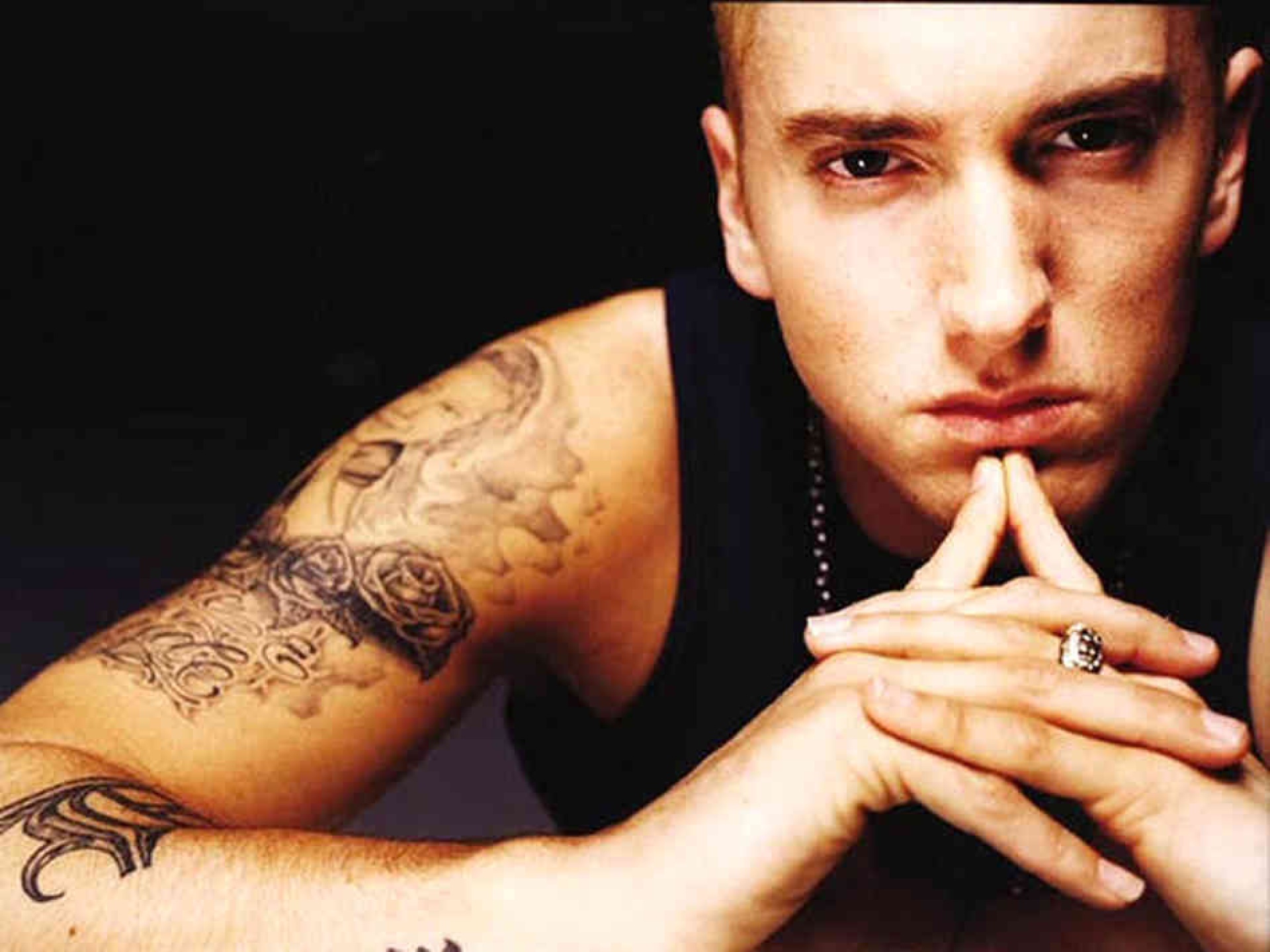Check out our vynil records of Eminem!
In the heartlands of St. Joseph, Missouri, a lyrical prodigy named Marshall Bruce Mathers III found solace in the cadence of words. Little did the world know that this introspective boy would emerge as Eminem, a rap juggernaut reshaping the very fabric of hip-hop.
Eminem's odyssey began with "Infinite" in 1996, a humble debut that barely hinted at the lyrical storm brewing within. It was the subsequent tempests that would define him. "The Slim Shady LP" unleashed a whirlwind of alter ego Slim Shady, introducing the world to Eminem's volatile wit. "My Name Is" echoed through the airwaves, an irreverent introduction to the rap game's newest provocateur.
Yet, it was "The Marshall Mathers LP" that catapulted Eminem to an echelon reserved for the chosen few. "Stan" became a cinematic narrative, while "The Real Slim Shady" echoed in the ears of a generation. Eminem wasn't just a rapper; he was a maestro orchestrating symphonies of raw emotion and complex rhyme schemes.
Collaborations with Dr. Dre became legendary. The duo crafted sonic landscapes that married Eminem's lyrical acrobatics with Dre's production prowess. The result was a fusion of beats and rhymes that defied convention.
As the world embraced Eminem's artistry, Hollywood beckoned. "8 Mile" unfolded, a semi-autobiographical saga where Eminem, now Marshall Mathers, navigated the streets of Detroit, winning an Academy Award with the anthemic "Lose Yourself."
Controversy clung to Eminem like a shadow. His lyrics, unapologetically explicit and often confronting societal taboos, courted debate. Yet, within the verses lay an artist grappling with personal demons, from addiction to tumultuous relationships.
"The Eminem Show," "Encore," and "Recovery" unfolded, each album a chapter in Eminem's evolution. He wasn't just adapting to the times; he was shaping them. His alter egos, from Slim Shady's irreverence to Marshall Mathers' vulnerability, allowed him to explore the spectrum of human experience.
In the 2010s, Eminem's journey continued. A hiatus gave way to "Kamikaze" and "Music to Be Murdered By," defiant comebacks that reaffirmed his prowess. The rap landscape had evolved, but Eminem's lyrical dexterity remained untamed.
As the sun sets on St. Joseph, the echoes of Eminem's rhymes reverberate across generations. His legacy is not just in the albums sold or the awards won; it's in the resilience of a boy who found his voice amid the struggles. Eminem, the maestro of resilience, continues to etch his verses into the ever-evolving story of hip-hop.

